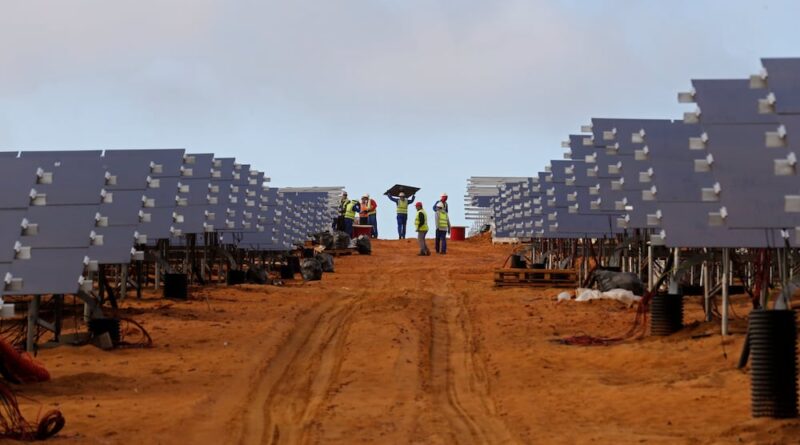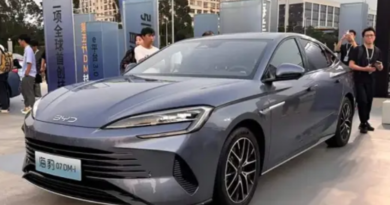How the Gulf can help African countries meet their climate-finance targets
As global leaders convene for Cop28 later this month, the urgency to pivot financial flows towards sustainable development has never been more critical. Climate finance is the backbone of the entire climate action agenda. Yet there is a stark contrast between the global commitment articulated in high-level discussions and the tangible actions being taken on the ground.
Therefore, the importance placed by the UAE’s Cop28 Presidency is the correct one. Dr. Sultan Al Jaber, Minister of Industry and Advanced Technology and Cop28 President-designate, has articulated a clear stance towards it and has emphasised the necessity of addressing the gaps in current climate change targets and forming a comprehensive response to address these issues. He has also called for a transformation of international financial institutions to increase capital flow for tackling climate change, resonating with proposals like the Barbados-led Bridgetown Initiative.
Climate finance is crucial for reaching our global net-zero goals. There is widely held recognition that we urgently need to boost spending further and more quickly to stay on track.
Still, unlocking climate resilience will require more than a focus on expanding investment and redirecting it to the areas most in need. Indeed, climate finance is less effective without viable projects that are ready for investment. The development of a reliable pipeline of climate-responsive infrastructure projects—those involving renewable energy, natural resources, utilities, or waste management—is the forgotten element of the energy transition that has the potential to bottleneck financial action.
Recent studies from the Tony Blair Institute for Global Change have revealed that in emerging markets, the number of climate-responsive infrastructure projects funded by private sources of capital has been decreasing by 10 percent per year since 2015. Climate-finance targets require these projects to increase by 30 percent per year by 2030.
Nowhere is the gap in climate finance more severe than in Africa. To adhere to its commitments under the Paris Agreement, the continent needs $2.8 trillion by 2030, an amount almost equal to its current gross domestic product. Yet with public debt hitting $1.8 trillion in 2022, African countries are finding it increasingly difficult to tap into their financial reserves for climate action.
With their deepening roots in Africa, GCC countries are well-positioned to take a leadership role in facilitating the continent’s energy transition.
GCC investments in Africa have seen a substantial upswing in recent years. Between 2012 and 2022, more than $100 billion of foreign direct investment flowed from the Gulf into Africa, spanning over 600 projects. With $59.4 billion of total investment, the UAE is the fourth-largest global investor in Africa, after China, Europe, and the US. It is followed by Saudi Arabia, which has pumped $25.6 billion of capital into the regional market.
This prominent position enables the Gulf countries to function not just as financiers but as partners in the energy transition, a domain yet to see its full potential.
What makes the GCC and Africa ideal partners in this endeavour?
The GCC countries have significant financial resources and a history of transformative domestic policies that can be leveraged to assist Africa’s energy transition. They understand the complexities and long-term nature of such efforts and can effectively navigate these challenges.
Africa offers a vast potential for green industrialization, with unparalleled solar and hydropower capacities. These renewable resources can be harnessed to develop green industrial zones, such as the one nearing completion in Mozambique, to produce essential materials such as steel, aluminum, and hydrogen. When the GCC invests in such initiatives, it not only propels Africa’s transition to sustainable energy but also secures essential materials that are critical to its own domestic industrial activities.
Africa’s strategic position makes it an ideal hub for green industries, perfectly situated to access key emerging markets. Consider the case of East Africa, where countries such as Tanzania and Mozambique have already served as important export bases. Here, GCC investors, in collaboration with their African partners, can distribute green energy products efficiently to vital global markets such as South Asia and the Gulf itself. This capability is crucial to fulfilling the GCC’s vision of becoming a global nexus for commerce and connectivity.
Most importantly, the partnership presents the GCC with an opportunity to solidify its position as a global leader in climate action, enhancing its international reputation by driving forward a shared global agenda.
The UAE is already leading by example in this space. At the African Climate Summit in September, Dr. Al Jaber announced a $4.5 billion commitment to fast-track Africa’s energy transition. The pledge, supported by leading entities such as the Abu Dhabi Fund for Development, Etihad Credit Insurance, and Masdar, showcases the remarkable inroads the GCC is making in this dynamic field of progress.
As Cop28 approaches, there is a real sense of urgency in this space. Climate investment is vital, and words must become action. A pivot towards strategic, targeted investment in Africa can catalyze the global transition to renewable energy and foster sustainable economic growth.
The landscape of global investment is also shifting. Where the latter part of the 20th century was marked by a focus on private market forces, the past decade has witnessed the emergence of substantial state-led overseas development initiatives.
Now, the world is looking towards the Gulf nations to establish new paradigms of investment. As they expand their global influence, there is an opportunity to chart a course that not only advances their interests but also carries the global community towards a more sustainable and equitable future.
Source : thenationalnews.com




